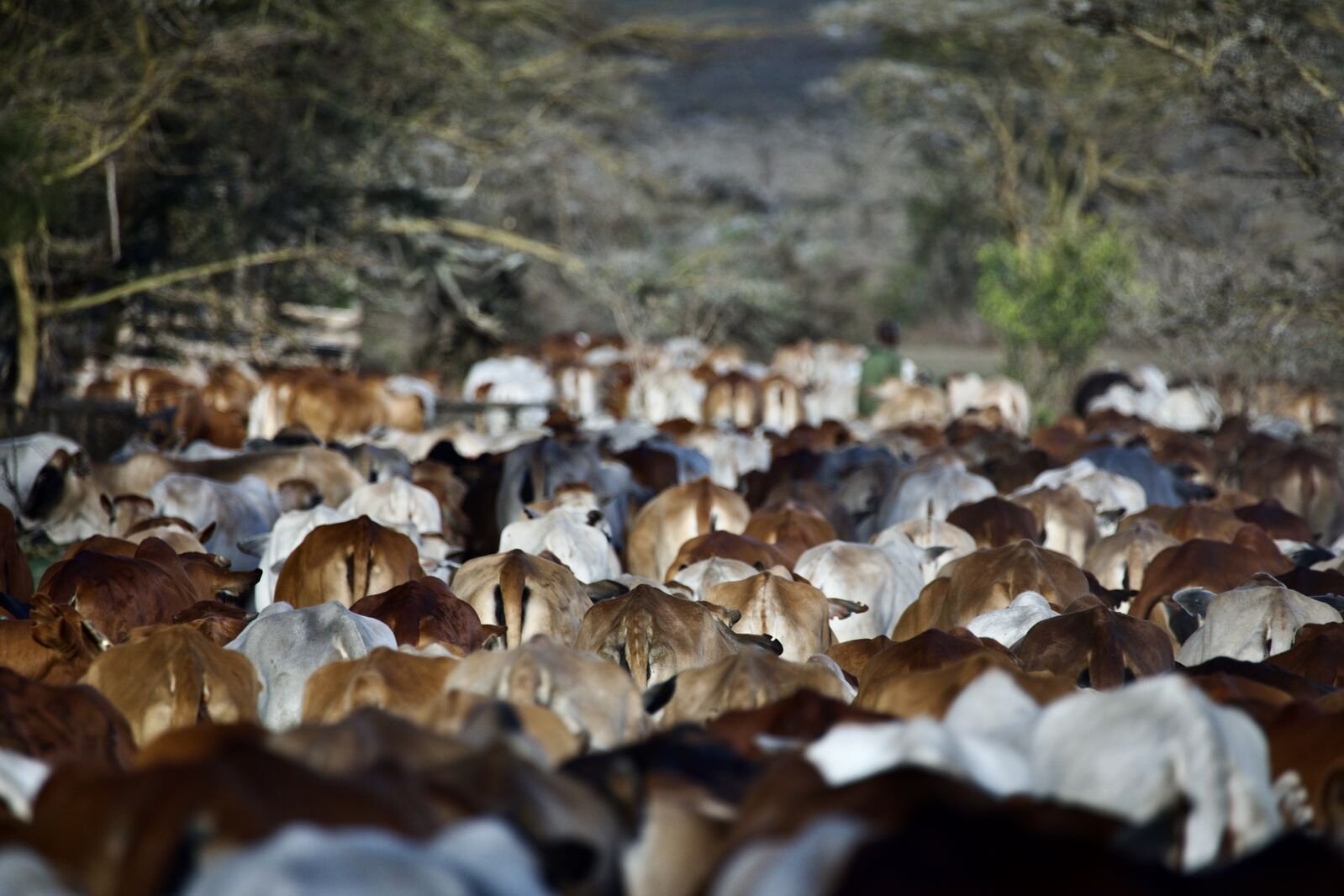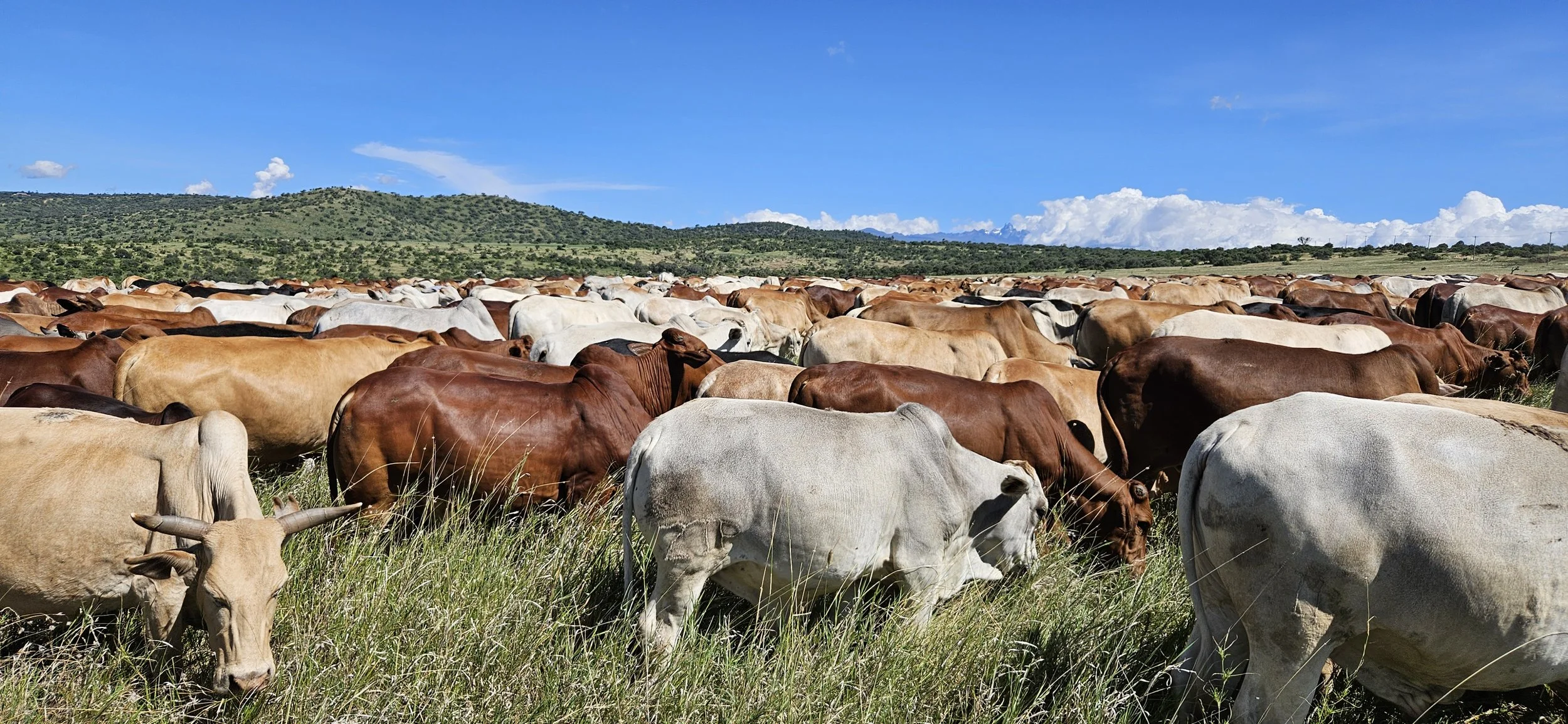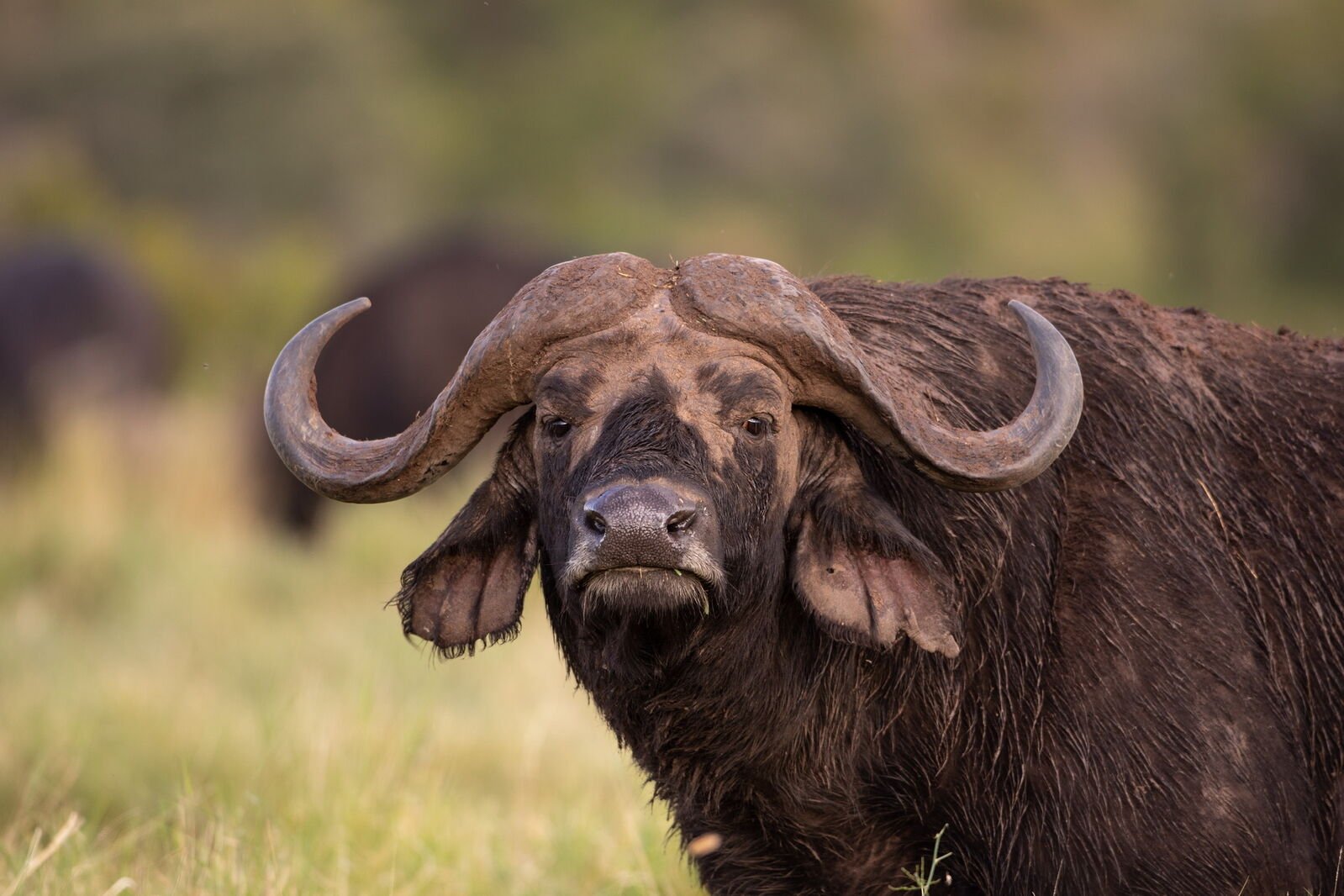
When managed in line with nature, domestic livestock can play a vital ecological role
Borana uses cattle as a rangeland management tool, livestock plays a vital role in our conservation success story but is also importantly very much part of the fabric of the Il Ngwesi people. Our creative livestock-to-market initiative enables our pastoralist neighbours to assemble and fatten cattle on Borana, this carefully managed grazing programme has, over a period of time, significantly increased the quality and resilience of our rangelands. This is independently monitored and verified. And similar restorative methodology is being adopted on community lands.
Cattle managed under our ultra high density system reduces moribund grass biomass, promotes seed dispersal and increases the nutritional value and diversity of the grasslands. We are noticing a marked improvement in rangeland quality and this is endorsed by the migration of wildlife to areas that are regularly grazed by livestock under this system.
Grazing management systems trialed recently on Borana are now widely adopted by some of the more progressive land managers both in private sector and community across wide areas of Kenya.
SHARESTOCK
ShareStock is a livestock startup business in Kenya, co-owned by the private sector and pastoralist communities. It uses regenerative practices to manage large herds and tackles issues such as land degradation, land rights, and resource conflicts historically caused by poor grazing systems. By collectively managing livestock in a way that mimics wildlife, the initiative helps restore ecosystems while generating income for livestock owners from meat and milk production. It also supports the preservation of cultural values in pastoralist communities. The main parties involved at this stage are Borana Conservancy, Lolldaiga Conservancy, Enasoit, and the Oromat livestock co-operative.
ShareStock aims to turn livestock management from an environmental threat into a sustainable practice that benefits the economy, society, and nature.

Opportunity
With the increase in land's carrying capacity due to new grazing techniques that work in almost any environment, there is a major opportunity for long-term collaboration beyond just crisis situations. ShareStock was created with the belief that this collaboration benefits everyone and is vital for the future of modern pastoralism and conservation.
By working together, we can move beyond the ongoing issue of limited land and too much livestock to a future where we have abundant, healthy land that supports growing herds and local wealth.
This concept has already drawn interest from credit developers, NGOs, and landowners due to its innovative and practical approach to helping communities adapt to and fight climate change.
Natural capital value
Sharetsock’s financial models do not yet account for potential revenue from integrated soil carbon and biodiversity credits. These credits are becoming more comprehensive, requiring a strong commitment to achieving ecological progress while respecting local cultures. Initial findings indicate that effective livestock management is crucial for unlocking these opportunities.
Solution
Sharetsock proposes creating a commercial and social system that allows for a collective ownership model, reducing risks and making coordinated livestock management and movement easier, more profitable, and fair. This innovative approach is our best chance to improve social, ecological, and economic outcomes on a large scale. It also ensures pastoralist communities have fair, managed access to natural resources, which has often been a source of conflict.
This model has been discussed with all potential shareholders.
How it works
Equity is based on a system where one cow equals one share. The initial ShareStock herd will be made up of ‘loaned’ breeding cattle, with individuals keeping ownership of their animals. Only the offspring born nine months after the cow joins the herd will belong to ShareStock. These offspring will be fattened for beef and sold in the local market, with shareholders receiving annual dividends. Shares will vest three years after the cow joins, allowing shareholders to exit the agreement with minimal legal or tax obligations if they choose to.
Social capital value
It is difficult to measure the significant social benefits this project could provide for the people and land of Laikipia, and potentially other regions.
Given Laikipia's history of private and communal land ownership, competing claims on those rights, and the struggle for dwindling resources amid a growing population, it's clear that conservation initiatives must focus on creating resources through regeneration. These initiatives should also offer equitable opportunities for people to access and benefit from natural capital in order to unite and heal the land. We believe the best way to achieve this goal is through families and their livestock, which are vital to Laikipia's identity and culture.
Improved rangelands and better connectivity lead to greater resilience for wildlife and increased diversity across the landscape. Ultra-high-density grazing reduces conflicts between domestic livestock, tourism, and predators, allowing both wildlife and nature-based businesses to thrive.


